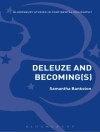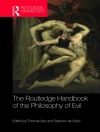The Practical Philosophy of AI-Assistants presents a formal conversation between an AI engineer, Peter, and a humanities researcher, Suman. The book ensures that specialist concepts in AI research are made comprehensible to a humanities researcher, while humanities theories can be easily grasped by an AI engineer.
The authors establish ground rules to design an AI-Assistant, that is, an AI system that could act as a personal friend, consultant and confidante for every individual, to be integrated into our daily lives. These rules apply to four large areas of AI development: recognition and identification, communication, explanation, and civility.
In discussing these areas, this book provides an accessible account of the current state of AI research, as well as adding nuance to the underpinning assumptions informing the relevant technologies, reflecting on their social implications.
The broader ideological objective of The Practical Philosophy of AI-Assistants is captured by the phrase ‘practical philosophy’, which expresses a commitment to bringing AI development to work towards a good life for all.
Contents:
- About the Authors
- Acknowledgements
- Introduction
- Recognition and Identification:
- Face Work 101 (Peter Tu)
- Face-Off (Suman Gupta)
- Facing Up to Challenges (Peter Tu)
- Janus-Faced Issues (Suman Gupta)
- Deception and Knowledge (Peter Tu)
- Elephants and Monkeys (Suman Gupta)
- Flavors of the Fabled ‘System 1’ (Peter Tu)
- Communication:
- Conversation with a Friend (Suman Gupta)
- Alan Turing, Kurt Gödel and David Hilbert Go to a Bar … (Peter Tu)
- Helpfully, Seriously, Ambiguously (Suman Gupta)
- Getting It: The Joke and the Gist (Peter Tu and Stephanie Stacy)
- The Tomasello Assumption and Virtuous Cooperation (Suman Gupta)
- As Long as It Catches Mice … (Peter Tu, Stephanie Stacy, and Federico Rossano)
- Explanation:
- Parables and Explanations (Suman Gupta)
- Nonlinear Explanations (Peter Tu and Alfredo Gabaldon)
- Unsystematic Notes (Suman Gupta)
- Intentional Explanations (Peter Tu)
- Three Models of Cogito (Suman Gupta)
- Puppets and Insects (Peter Tu)
- Civility:
- Civil Mores and Concerns (Suman Gupta)
- A Question of Allegiance (Peter Tu)
- The AI Prevent Agent and the AI Civility Assistant (Suman Gupta)
- The Imagined Me (Peter Tu and Mark Grabb)
- Decisions and Choices (Suman Gupta)
- Bibliography
- Index
Readership: Established researchers in a wide range of disciplines: engineering, cognitive sciences, evolutionary processes, systems theory, linguistics and communication, philosophy, text and discourse analysis, social sciences and cultural studies. University students, undergraduate level and above, in the above-named disciplines. AI policy makers general readers who have kept an eye on such technologies.
‘This book is an interesting trip down the rabbit hole of AI where technology meets philosophy. The book explores both the history of AI and its technological developments, and the philosophical concepts of what it means to be conscious, in the form of conversational/educational letters written between the authors in a kind of mutual learning ping pong. The authors dive deep into the history and details of both their disciplines — for which they are clearly masters. The masks come off the authors as it becomes clear that both are technologists and philosophers — having arrived at a similar place from very different starting points. The book turns toward an insightful discussion as it takes on the big challenges of our time: about what it means to be human, what we might truly want from AI, and how we might approach that with our eyes wide open. It leaves us with important questions about balancing civility with authority and about our potentially misguided focus on anthropomorphizing our tools. And in doing so, we must be careful and intentional in creating AI technologies and reflect on how our own biases and assumptions and human experience might impact them. The book leaves us with the important question — if AI is our reflection, what is it that we want to be reflected about our humanity in our technological mirror and how might that change us?’ – John Garofolo Senior Advisor for Applied Analytic Programs National Institute of Standards and Technology (NIST), USA
Key Features:
- The book is written in an accessible manner as much to inform and debate as to entertain: engineering descriptions are expressed to be accessible to a humanities researcher, and philosophical or social concepts are similarly rendered amenable to reading by engineers
- This book clarifies the engineering methods and theoretical principles that could underpin the construction of an optimal personal AI-Assistant — that is, an AI system or device which could be considered beneficial and desirable for every individual
- The field of AI research tends to take a ’top down’ approach, focusing on government and corporate objectives. This book takes a grass roots approach and focusses on the place of AI in everyday life
- Considered accounts of the frontline of four critical areas of AI research are presented and debated, while serious discussion is interspersed with light-hearted observations












